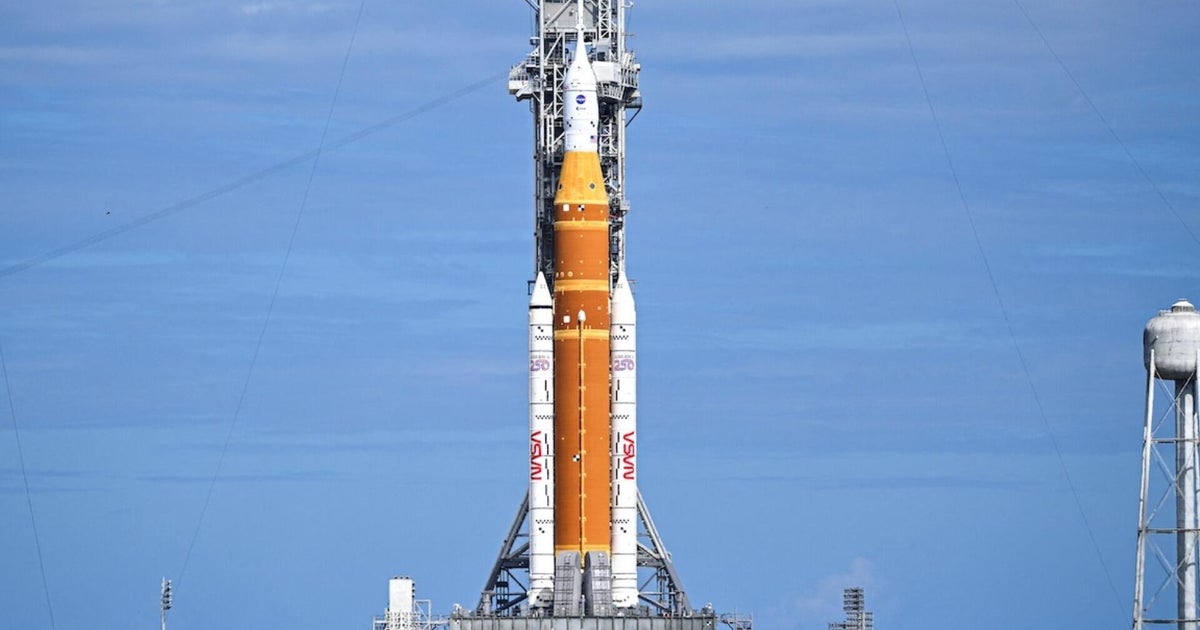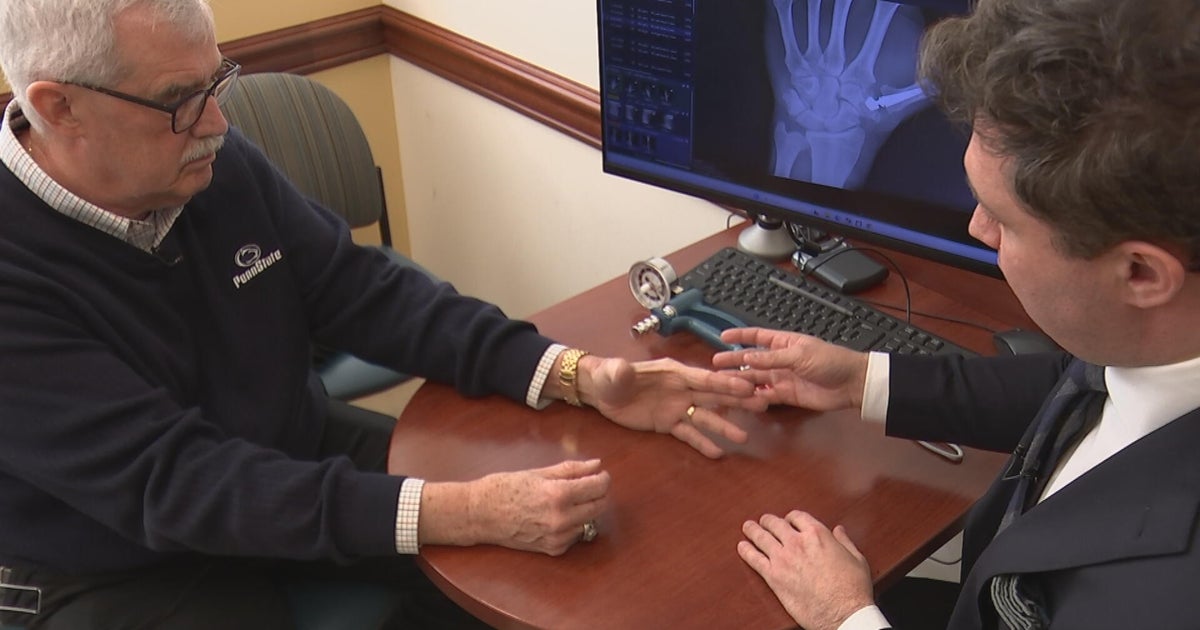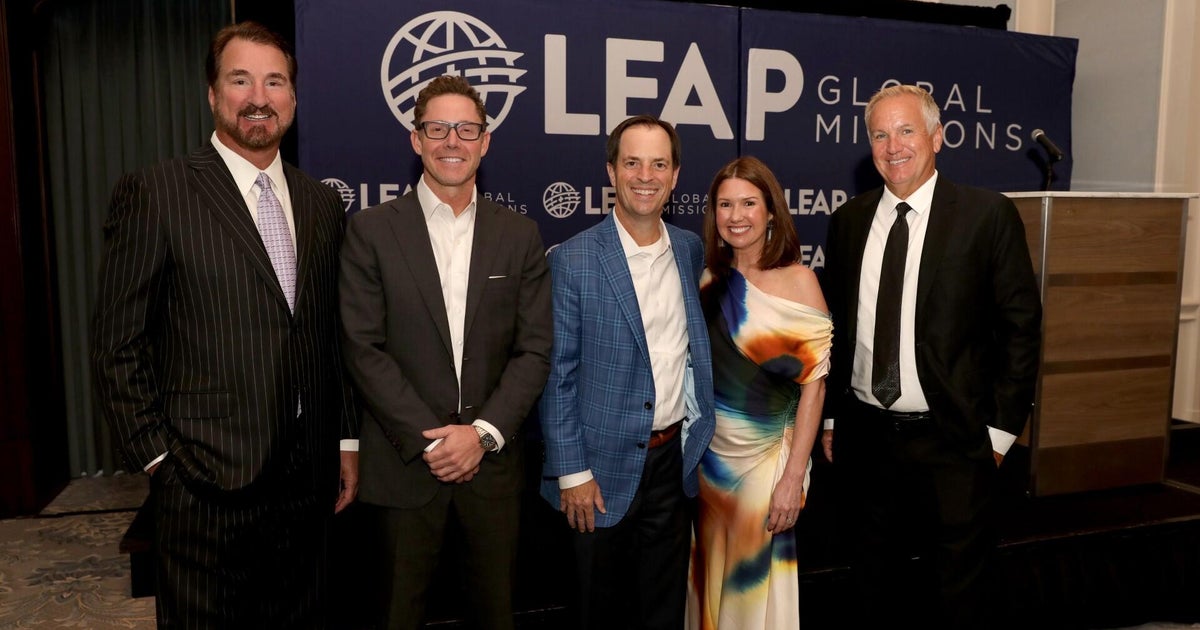Matt's Favorites: Johnny Carson Online, Unique Look At Earth, And More
SOUTHFIELD (WWJ) -- So what's the latest and greatest in the ever-transforming world of high technology? Boy, check out these gems...
* For those of us of a certain age, there will forever be just one late night TV host -- Johnny Carson. His style, his interviewing skills, his ability to get you to laugh at a really bad joke -- all his skills put today's late-night hosts to shame. Well, joy, rapture -- the shows of the one and only king of late-night TV are about to go digital.
* NASA's Cassini spacecraft has beamed back spectacular pictures of Saturn, its rings and distant Earth, a "pale blue dot" nearly a billion miles away, as the robot passed behind the ringed planet last Friday. Following Cassini's lead, NASA's Messenger spacecraft, in orbit around Mercury, also trained its camera on Earth during a search for undiscovered moons.
* Natural gas flowed uncontrolled from a well off the Louisiana coast on Tuesday after a blowout that forced the evacuation of 47 workers aboard a drilling rig, authorities said. No injuries or fires were reported. The federal Bureau of Safety and Environmental Enforcement said inspectors flying over the site Tuesday saw a light sheen covering an area about a half-mile by 50 feet. However, it was dissipating quickly.
* The British government plans to posthumously pardon Alan Turing, the genius mathematician and coder who is often credited with changing the course of World War II for his success in breaking the German ciphers, according to the Guardian. Why would a war hero need a pardon? In 1952, he was arrested under the 1885 Criminal Law Amendment Act and charged with "gross indecency." In modern language, he was prosecuted for being gay.
* Here's a lovely essay on the perils of light pollution. Turn off the damn lights!
* Fans called him Flipper, but friends and relatives of the world's most famous dolphin might know him by another "name." According to researchers at Scotland's University of St. Andrews, the high-pitched squeals of bottlenose dolphins are unique personal identifiers, similar to human names.
* Buried for up to 72 million years, one of the world's largest intact dinosaur tail fossils is now almost fully visible. Archeologists from Mexico's National Institute for Anthropology and History (INAH) and National Autonomous University of Mexico (UNAM) have been brushing away sand and gravel for nearly 20 days, slowly revealing a record 50 connected vertebrae on the 16-foot tail.
* Flat screens have been a selling point for TVs for more than a decade. Now, LG and Samsung are making a selling point of screens that are not flat. The two Korean electronics companies are launching TVs in the U.S. this week that have concave screens, where the middle bends away from the viewer. That's the opposite of the convex bulge of the old cathode-ray tube TVs. The idea, the companies say, is to have the viewer see the screen straight on, even at the edges.
* If America is ever actually crazy enough to fight a nuclear war, here's the flying platform from which the president will orchestrate the end of modern civilization.
* And continuing in this cheery vein, there's a brand-new way to imagine the swath of destruction left by nuclear weapons. NukeMap3D simulates the effects of nuclear weapons using Google Earth.
* We're number nine! The United States, that is, in terms of national rankings of Internet speeds.
* AT&T reported on Tuesday a slight increase in revenue for the second quarter of 2013, as the company continued to boost sales in wireless. Also, interestingly, Google Android smartphones sales outpaced sales of the Apple iPhone at AT&T in the second quarter, as the No. 2 carrier wireless carrier looks for more efficient ways to make a profit in the competitive wireless business.
* If you read the endorsements from NASA scientists on Derek Tidman's book, his idea may seem a tad less wacky than at first blush. He thinks a massive, gyrating coil can speed up objects fast enough to give them escape velocity and send them into orbit. The book outlined the concept. Now he's trying to build a large prototype launcher with Kickstarter backing. It's called the Slingatron.
* Motorola and Verizon announced the Droid Mini Tuesday at a press event in New York. It's the lowest-cost device in Motorola's lineup of three new Droid devices -- the Droid Ultra, the Droid Mini, and the Droid Maxx -- at only $99, but it still offers some impressive specs.
* With a sophisticated lower-limb system that incorporates a 43-point pressure-sensor array, the iStruct humanoid and apelike robot might be the next explorer to traverse the surfaces of distant planets. The multilegged robot, developed by Germany's Research Center for Artificial Intelligence and the University of Bremen, shows the advantages of actuated multi-point-contact feet, using a suite of sensors to monitor precise movements of the foot and ankle structures.
* A Verizon executive has called AT&T's latest ad claiming the most reliable network misleading. The Verizon exec criticized the rival carrier's use of an undisclosed firm's data as a basis for its claim. AT&T, meanwhile, dismissed the criticism.
* Now here's a cool idea: A gizmo being funded by a Kickstarter campaign that absorbs the CO2 emitted by your car at the tailpipe. The downside: The $500 a year cost of fresh filters, and having to swap them out every few months. (Great idea for federal subsidy or fleet use, though.)
* Real-world losses due to cybercrime add up to between $100 billion and $500 billion globally, and more than 500,000 jobs in the U.S. alone, according to report commissioned by McAfee.
* This is a cool little note: Just adding iodine to salt resulted in a significant, measurable increase in the national IQ.







